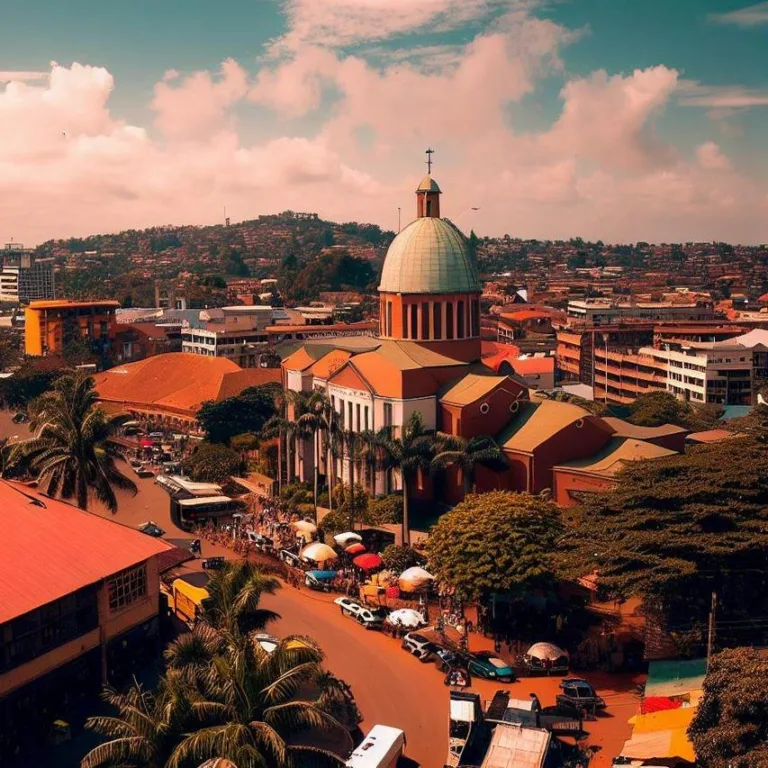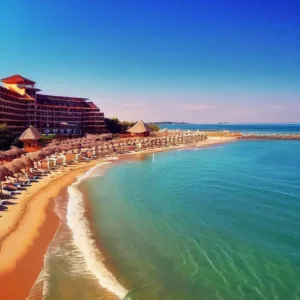Welcome to our comprehensive guide to Kampala, the vibrant and bustling capital city of Uganda, located in the heart of East Africa. Nestled on the shores of Lake Victoria, Kampala is a city that seamlessly blends tradition with modernity, offering a rich tapestry of culture, history, and urban experiences. In this article, we’ll explore the many facets of Kampala, from its historical landmarks and vibrant markets to its diverse cuisine and lively nightlife.
The historical tapestry
Kampala boasts a storied history that dates back to the 19th century, when it was initially established as a royal hunting reserve by the Kabaka (King) of Buganda. Over the years, the city evolved into a key administrative and economic center under British colonial rule. Today, remnants of its colonial past can still be seen in the architecture of old government buildings and churches that grace the city.
Kasubi Tombs: Guardians of Tradition
One of Kampala’s most revered historical sites is the Kasubi Tombs, a UNESCO World Heritage Site that holds immense cultural significance. The tombs are the final resting place of Buganda kings and royals, and they provide a glimpse into the rich spiritual and cultural heritage of the Buganda kingdom. The architectural marvel of the tombs showcases traditional craftsmanship and intricate design.
Cultural melting pot
Kampala is a true melting pot of cultures and ethnicities, making it a captivating destination for those seeking diversity. The city is home to various communities from across Uganda and beyond, each contributing to the vibrant social fabric that defines Kampala.
Ndere Cultural Centre: Celebrating Unity
The Ndere Cultural Centre stands as a testament to the unity in diversity that defines Uganda. This center is dedicated to preserving and showcasing the various cultural practices, dances, and music of the numerous ethnic groups in the country. Visitors can witness colorful performances that highlight the traditions and stories of these communities.
Sights and sounds of the city
Kampala offers a plethora of attractions that cater to all interests. From serene natural landscapes to bustling markets, there’s something for everyone to enjoy.
Owino Market: A Shopper’s Paradise
Owino Market, also known as St. Balikuddembe Market, is a vibrant hub of trade and commerce. Here, you can find everything from fresh produce and textiles to crafts and electronics. Navigating the market’s labyrinthine alleys is an adventure in itself, offering visitors a chance to immerse themselves in the local way of life.
Uganda Museum: Timeless Treasures
For those eager to delve into Uganda’s past, the Uganda Museum is a treasure trove of artifacts and exhibits that showcase the nation’s history, culture, and natural heritage. The museum’s collections span from traditional instruments and ethnographic displays to archaeological finds, providing insights into the evolution of Uganda over the centuries.
Culinary delights
Kampala’s culinary scene is a reflection of its diverse population, offering a fusion of flavors that tantalize the taste buds.
Rolex: A Ugandan Street Food Icon
No trip to Kampala is complete without trying a „Rolex,“ a popular street food that combines a chapati (flatbread) with eggs, vegetables, and sometimes meat. This savory treat is beloved by locals and visitors alike and has become synonymous with Ugandan cuisine.
Luwombo: Tradition on a Platter
Luwombo is a traditional Ugandan dish that encapsulates the essence of Kampala’s culinary heritage. It typically consists of meat, vegetables, and groundnuts (peanuts) cooked together and wrapped in banana leaves before being steamed. The result is a flavorful and aromatic dish that exemplifies the country’s culinary traditions.
Nightlife and entertainment
As the sun sets, Kampala transforms into a city that knows how to let loose. The city’s nightlife scene is a blend of trendy bars, live music venues, and bustling clubs.
Nyama Choma: Grill and Chill
Nyama Choma, which translates to „grilled meat,“ is a beloved East African dining experience that takes center stage in Kampala’s nightlife. Many venues offer a variety of meats, from succulent beef to tender chicken, expertly grilled and served with an array of side dishes. This culinary journey is often accompanied by live music and a lively atmosphere.
Nightclubs and Dance Floors
Kampala’s energetic spirit comes alive on its dance floors. The city is known for its thriving nightclub scene, with venues that cater to different music preferences, from Afrobeat and reggae to electronic and pop. These clubs offer a chance to dance the night away and mingle with locals and fellow travelers.
Frequently Asked Questions (FAQs)
Is Kampala a safe destination for travelers?
Kampala is generally considered safe for travelers. Like in any major city, it’s advisable to take basic precautions such as avoiding isolated areas at night and safeguarding your belongings.
What is the best time to visit Kampala?
The dry seasons, from December to February and June to August, are ideal for visiting Kampala. The weather is pleasant, and outdoor activities can be enjoyed without much interruption from rainfall.
How do I get around the city?
Kampala offers a variety of transportation options, including boda-bodas (motorcycle taxis), matatus (shared minivans), and traditional taxis. Make sure to negotiate fares before getting on boda-bodas or matatus.
What currency is used in Kampala?
The Ugandan Shilling (UGX) is the official currency used in Kampala. It’s advisable to carry some cash for small purchases, as not all places accept credit cards.
Are there any cultural etiquette tips to keep in mind?
Respect for local customs is important. It’s recommended to dress modestly, especially in religious or rural areas. Greeting people with a smile and asking for permission before taking photos is also appreciated.
Viz také:






